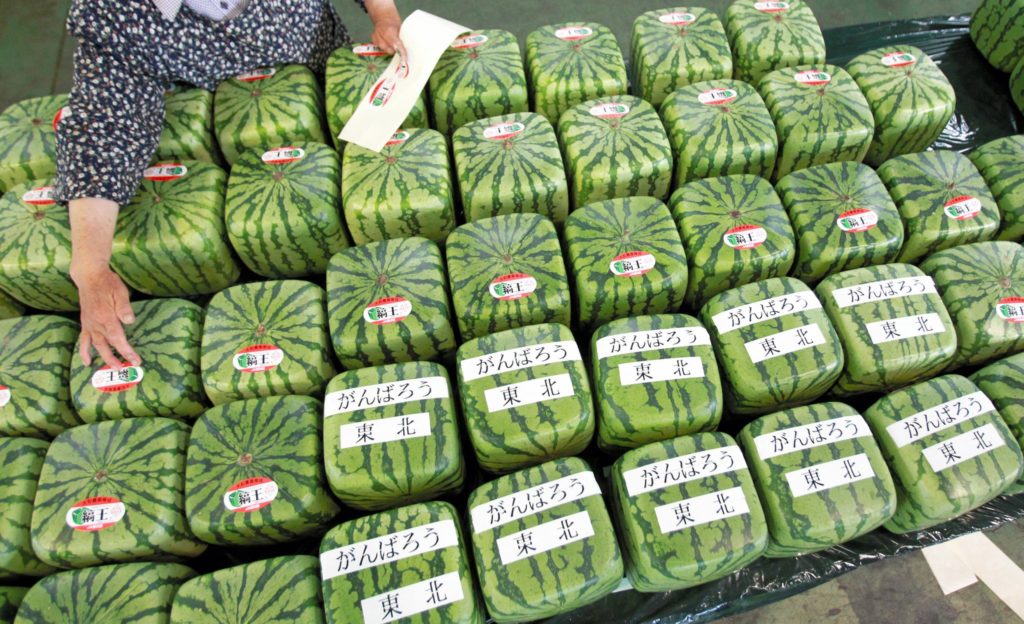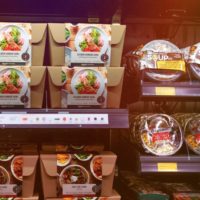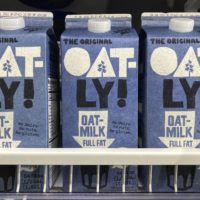 Image source: New York Times
Image source: New York Times
Every week we track the business, tech and investment trends in CPG, retail, restaurants, agriculture, cooking and health, so you don’t have to. Here are some of this week’s top headlines.
The USDA has officially dropped all regulations on gene-edited crops, stating it to be a faster form of breeding. Neither the agency or the FDA have issued guidance specific to labeling GM foods.
In retail news, Thrive Market has added perishables in the form of frozen meat and seafood bundles. Instacart has added $150 million to its most recent funding, bringing total raised funds to $350 million.
Capital continues to pour into the alternative meat category. Impossible Foods has raised $114 million in convertible note financing. Wild Type, a new lab-grown fish startup, raised $3.5 million to develop the first cell-cultured salmon.
Check out our weekly round-up of last week’s top food startup, tech and innovation news below or peruse the full newsletter here.
_______________
1. CRISPR’d Food, Coming Soon to a Supermarket Near You – Wired
On March 28, the USDA stated certain gene-edited plants can be designed, cultivated and sold free from regulation. Neither the USDA or FDA has issued guidance specific to labeling of foods derived from gene-edited plants.
2. Thrive Market Gets into Perishables, Wants to Improve the Way Farmers and Fishermen Do Business – Forbes
The online retailer has just begun selling bundles of frozen meat and seafood supplied by small and mid-sized farmers and fishermen. Former Whole Foods employee Mike Hacaga is leading the program.
3. Instacart Adds $150 Million Two Months After Last Funding – Bloomberg
The company is adding more money to a previous round of venture financing, bringing the total to $350m to fund a battle with Amazon. Coatue Management led the round, which rose Instacart’s valuation to $4.35b.
4. Impossible Foods Raises $114M – Project Nosh
The convertible note from Temasek and Sailing Capital brings the startup’s total financing to nearly $400m. The company plans to debut in Asia later this spring.
5. Smucker to Buy Rachael Ray Dog Food Brand in $1.9B Deal – Bloomberg
Smucker agreed to buy Ainsworth Pet Nutrition, betting that pet food can help reinvigorate sales.
6. Alibaba Takes Control of Ele.me, at $9.5B Value – Bloomberg
Alibaba is buying full control of Ele.me as it steps up efforts to expand in China’s fast-growing market for local delivery of food and other services.
7. China’s Meituan Dianping Acquires Bike-Sharing Firm Mobike for $2.7B – Reuters
Meituan and Mobike will share technology, operations, marketing and customer service resources. The consolidation will help Meituan sharpen its offerings in the on-demand sector, intensifying the rivalry between Tencent and Alibaba.
8. Hershey Reveals $500M Sustainable Cocoa Strategy – Confectionery News
The initiative aims to address issues facing cocoa-growing communities, such as poverty, poor nutrition, at-risk youth and vulnerable ecosystems over the next 12 years.
9. 82Labs Raises $8M to Create a Better Hangover Recovery Drink – TechCrunch
Financing came from Altos Ventures, Slow Ventures, Strong Ventures and Thunder Road Capital. Funding will go towards commercializing the product at scale.
10. Wild Type Raises $3.5M to Reinvent Meat for the 21st Century – TechCrunch
The seed round was led by Spark Capital, with participation from Root Ventures, Mission Bay Capital and a group of angels. The startup aims to develop the first cell-cultured salmon.
11. UberRUSH Is Shutting Down – TechCrunch
The company will officially be ending its on-demand package delivery service for merchants in New York City, San Francisco and Chicago on June 30th.
12. China’s Didi Chuxing Confirms It Has Launched a Food Delivery Business – TechCrunch
The company, which acquired Uber’s China-based business in 2016, confirmed it is running a pilot food delivery service in Wuxi, and has plans to expand further.
13. How China Will Target US Agriculture – Politico
China said it would impose a 25% tariff on $50b worth of American exports, many of which are dominant agricultural commodities like soybeans, wheat, corn, beef and orange juice. The tariffs will hurt the bottom lines of US farmers and ranchers.
14. FDA Comissioner Scott Gottlieb Wants to Define “Healthy” and “Natural” – New Food Economy
The agency’s new agenda aims to promote healthy eating and improve public nutrition. It plans to modernize its approach to food labels and packaging claims.





